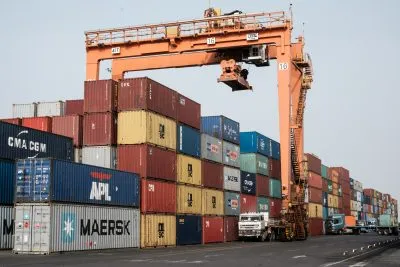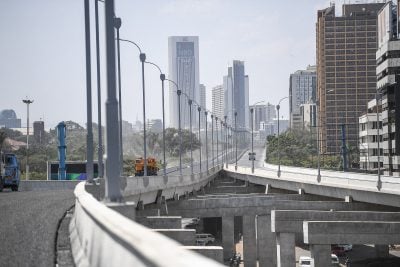In September, the Kenyan government passed the country’s biggest ever budget. The rise in taxes is leading to a squeeze that is provoking discontent among citizens and corporates alike.
This summer, after the Kenyan treasury declared its intention to implement a 16% VAT levy on fuel that had been delayed several times, there was protest from all sides. MPs hastily formed an opposition caucus, local matatu bus drivers went on strike and thousands of Kenyans took to social media to decry what was perceived as an unfair burden on the average citizen.
Considerable toing and froing ensued as the increase, contained within the 2018 Finance Act, bounced between the National Assembly and the president. Finally, the hike was signed into law at 8%. President Uhuru Kenyatta’s insistence on imposing the levy, which the lower house had voted to delay for another two years, reflects the government’s ambitious spending plans as it aims to finance the country’s $29bn budget, its largest ever.
Although opposition has centred around the fuel tax, the overall Finance Act contained numerous other increases that are set to squeeze citizens and corporates alike. Many object to paying for the government’s large infrastructure projects whose profitability and developmental impact are contested. Others argue that the government will squander the money through corruption and point to alternative ways to raise funds.
Feeling the pinch
In the days following the imposition of the levy, Nairobi’s streets were noticeably quieter.
“People are going to restrict their movements,” says Simon Kimutai, chairman of the Matatu Owners Association. “We have not seen public transport vehicles being affected but personal vehicles have lessened on the road.”
The increased price of fuel has hit consumers, with average fares rising by KSh20 ($0.20) per journey. The price of goods, especially wheat and maize, have followed suit, with transportation costs passed on to consumers.
Other measures in the Finance Act are also set to hit the average citizen. In Nairobi, the price of kerosene, used in most households across the country for cooking and lighting, increased by over 10% per litre due to excise duties.
These rises are stark when contrasted to tax cuts being implemented for gambling companies. The Finance Act reduces the tax on revenues for the high-grossing firms to 15% from 35% and instead allows government to tax punters’ winnings. The symbolic nature of tax breaks for Kenya’s rich has ruffled feathers.
“For kerosene you’re basically telling the average Kenyan they can’t access food and consigning them to a life of extreme poverty, so it was shocking that this tax was raised, yet one of the ills that afflicts society in the form of gambling has not been addressed,” says Robert Waruiru, associate director of tax and regulatory services at KPMG.
Corporate concerns
Yet gambling was one of the few areas where the private sector had cause to celebrate. Critics have complained that increased taxes are stifling business. For example, excise duty on fees charged by financial institutions has been ramped up from 10% to 20%. “The general business society is not happy with the new laws,” comments Waruiru. “Principally because there’s a feeling that these revenues have not been effectively used by government in the past, so there’s a sense of why are we paying again?”
A concurrent issue is an evolving dispute between the private sector and the Kenya Revenue Authority. President Uhuru Kenyatta signed the Finance Act into law on 21 September. However, it is was not immediately clear in which tax window companies would begin to be charged the higher rates, leading to fears of a cash grab from government.
“We have a challenge with the revenue authority because in the last two months of the year they didn’t hit their targets for revenue collection,” explains Waruiru. “So obviously they are now looking to collect as much as they can, which immediately puts taxpayers and revenue authorities at loggerheads.” The legal process has also come under scrutiny from lawyers and activists who argue Kenyatta’s amendments to the bill fall outside the remit of the Kenyan constitution.
Okiya Omtatah, a human rights activist, is attempting to sue the government for what he feels is executive overreach. “The president did not just assent or decline to the bill but drafted amendments to it and then sent it back to parliament. And so that brings about the constitutional question of whether the Kenyan president is usurping the legislative power of parliament.”
Other avenues
Yet amid the legal, ethical and practical concerns it’s clear the Kenyan government needs to raise capital to fund development. However, many citizens do not trust government to spend taxpayers’ money wisely. Nearly 52% of tax money is being allocated to debt servicing and this is expected to increase when debts for projects like the Mombasa-Nairobi Standard Gauge Railway begin to mature next year. Many suspect project overspending is being used to hide corruption. Boosting confidence in state spending could have a dramatic influence on Kenya’s ability to raise taxes.
Critics also argue that fat should be trimmed from elsewhere before the average Kenyan citizen is targeted. David Njoroge, a private taxi driver protesting the fuel hike, argues the government could streamline its operations. Over half of the budget is allocated to financing the functions of the national government at around $15bn – approximately the same amount to be collected by the Finance Act.
“The government could get money from many other corners. Why do we have so many MPs, governors and senators? If there were to deduct those numbers they would get the same amount of money they are hoping to raise in the tax.” Finally, targeting pre-existing taxpayers with increases may serve to discourage compliance. Similar amounts could be raised through expanding the base, rather than doubling down on those who already make an effort to pay taxes, thought to be as low as 3m.
“The few guys who are complying will now feel the pressure,” says Waruiru. “What is likely to happen is that a lot of people will go underground as it becomes too expensive to comply with taxes.” While Kenya’s 2018 Finance Act seeks to support the country’s largest ever budget, the controversy over who should fund it is likely to roll on.
Tom Collins in Nairobi
Want to continue reading? Subscribe today.
You've read all your free articles for this month! Subscribe now to enjoy full access to our content.
Digital Monthly
£8.00 / month
Receive full unlimited access to our articles, opinions, podcasts and more.
Digital Yearly
£70.00 / year
Our best value offer - save £26 and gain access to all of our digital content for an entire year!
 Sign in with Google
Sign in with Google 



